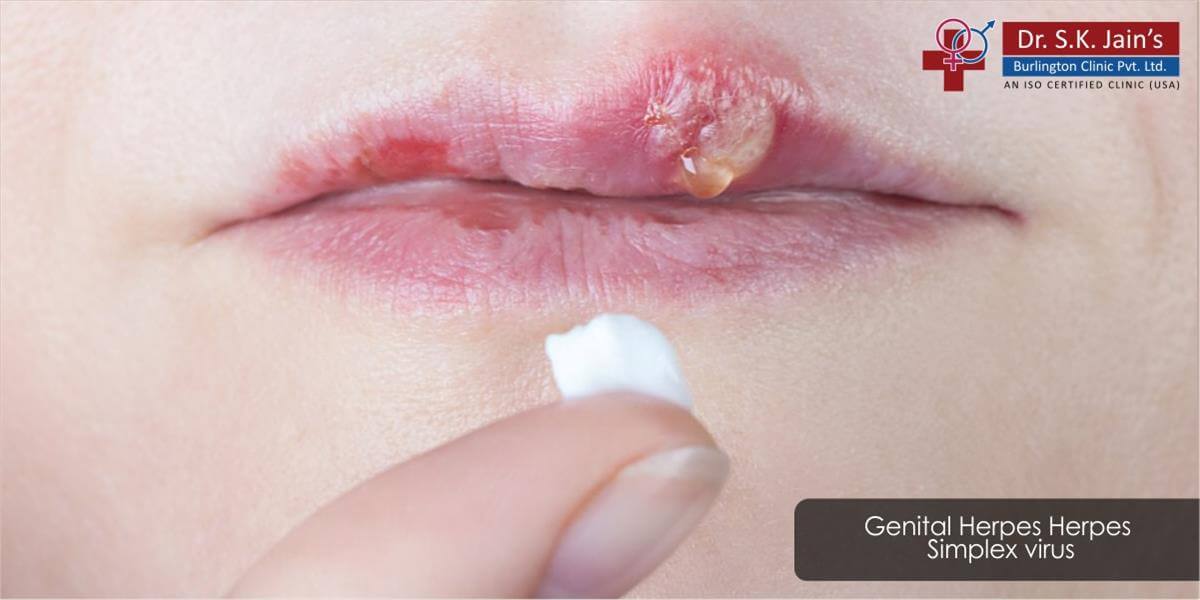
Genital herpes is a highly contagious sexually transmitted disease. Features of genital herpes include pain, itching and sores in your genital area.The cause of genital herpes is a strain of herpes simplex virus (HSV), which enters your body through small breaks in your skin or mucous membranes....
Everything you need to know about Herpes Simplex virus
Herpes is a contagious, albeit no longer debilitating, sexually transmitted disease. Caused by the herpes simplex virus, which is categorised into HSV-1 and HSV-2, herpes is incurable, but can be managed with the right treatment. HSV-1 is most often the cause of cold sores and blisters on the skin, which can be passed on by kissing or sharing objects like toothbrushes. HSV-2, on the other hand, causes sores around the genitals and can be transmitted through sexual activity with someone who has a genital HSV-2 infection. While having herpes can be embarrassing and difficult to talk about, it helps to know that anyone can contract it and its nothing to be ashamed of. More often than not, you may not even realise you have herpes, because of the lack of sores, which is why it’s important to know about the causes and symptoms of genital herpes.
What causes herpes?
The herpes simplex virus (HSV), if present on your skin, can be transmitted through skin-to-skin contact like oral sex or intercourse. If you are infected with HSV once, you will most likely carry it for the rest of your life, and get what are called recurring infections.
What triggers recurring herpes outbreaks?
• Prolonged illness
• A weak immune system
• Chemotherapy
• Trauma, including that from sexual activity
• Physical or emotional stress
What are the symptoms?
For people who have been infected by HSV for the first time, the symptoms may appear months after they’ve been exposed to the virus. Many a times, the symptoms may not appear at all, making it difficult to be diagnosed. If you think you have been exposed to the virus, you could experience the following symptoms:
• Blisters around the genitals, rectum, thighs and buttocks
• Pain while urinating
• Vaginal discharge
• Feeling generally tired and unwell
• Flu-like symptoms
What kind of tests need to be done to detect herpes?
Sexologist Dr.SARANSH JAIN advises blood tests (for those who don’t display obvious symptoms) and a viral culture test (for those who display the symptoms) to detect herpes. There are also some other tests like viral antigen test and polymerase chain reaction test (PCR) that may have to be undergone. While doing a viral culture, viral antigen or PCR test, a cotton swab is rubbed against a sore to collect the fluid for testing.
What are the treatment options for herpes?
Dr.SARANSH JAIN says, “Unfortunately, there is no cure for herpes, but antiviral medication can reduce the frequency of outbreaks and daily use of the same can reduce the chances of transmitting the virus to the partner.” He further adds, “Commercial vaccines that can protect against this infection are not available. The clinical trials of vaccines against herpes have had mixed results so far.”
What kind of medication will the doctor prescribe for herpes?
Dr.SARANSH JAIN advises, “Antiviral drugs are used to treat genital herpes; the initial course will be for 7 to 10 days but can be prolonged depending on the healing of the sores. After that, the antiviral drug and the duration of the treatment will depend on whether it is for intermittent treatment (2 to 5 days, to be taken during flare-ups) or for suppressive treatment (daily dose, to be taken if the outbreaks occur often)” A few antiviral medications that are prescribed to help manage your symptoMS
What you need to know about preventing herpes
Dr.SARANSH JAIN says, “You can lower the chances of getting herpes by using condoms, and avoid having multiple sex partners as this increases the chances of contracting herpes.” For those facing recurring outbreaks, avoiding certain foods and a change in lifestyle can be helpful. Reduction in stress levels also helps in minimising the frequency of outbreaks. Other than that, you could try doing the following:
• Avoid sharing toothbrushes, sex toys and other intimate objects as they can transmit the virus
• Avoid kissing your partner if either of you have cold sores around the mouth
• If you don’t know your partner too well, ask them about their sexual history
• Avoid sex with your partner if he or she has sores around the genitals
• Don’t indulge in oral sex with someone who has cold sores around the mouth
How to speed up the healing process
• Do not cover the sores
• Apply cold compresses to the sores to relieve pain and itching
• Do not scratch. Scratching can lead to the sores getting infected
• Wear loose, cotton underwear
• Clean the sores with soap and water and then pat them dry
What to eat
Over-intake of caffeine and alcohol can weaken the immune system and lead to herpes outbreaks. Eat foods rich in lysine like dairy products, fish, poultry and most fruits and vegetables, as they help your body resist and fight the virus. Natural produce like mushrooms and garlic are found to fight herpes outbreaks, so try to include these in your diet. Dr.SARANSH JAIN says, “Intake of sugar, white flour and processed foods should be reduced. Other food items to be avoided include chocolate, peanuts and almonds as they are rich in arginine.”
When should I visit a doctor?
“Most people who are infected by this virus show no symptoms or very mild symptoms. If you are pregnant, then you need to disclose your condition to your doctor as genital herpes can lead to miscarriage and the infection can be passed on to the unborn child,” advises Dr.SARANSH JAIN If you have frequent outbreaks or if the symptoms get worse in spite of the medicines, you should visit your doctor